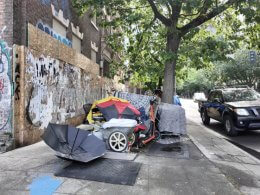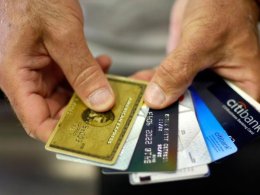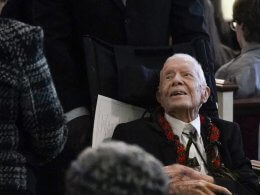By: Fred Lucas, The Daily Signal
Nevada’s largest jurisdiction investigated why voters were registered at commercial addresses such as Las Vegas casinos and strip clubs, finding at least 19 out of 90 suspect registrations that need further review.
The Public Interest Legal Foundation, an election watchdog group, dropped a lawsuit against Clark County Registrar Lorena Portillo after she agreed to investigate 90 names of county voters who registered at commercial addresses that also include vacant lots, gas stations, and fast-food restaurants.
The biggest problems is the Nevada statewide policy of mailing out ballots to all registered addresses, Lauren Bis, director of communications and engagement at the Public Interest Legal Foundation, told The Daily Signal.
“If they are going to do that, then election officials need to be diligent,” Bis said. “When a casino comes up as an address, that should be a red flag to investigate. I’m glad our lawsuit forced officials to do that.”
Nevada is among a few battleground states that could decide the outcome of the Nov. 5 presidential election. Registration addresses also take on added importance for a state that automatically mails a ballot to every active registered voter.
In a separate case this week, Nevada’s Second Judicial Court denied a motion from Washoe County—which includes Reno—to dismiss a lawsuit by the Public Interest Legal Foundation seeking to force election officials to investigate registered voters who list commercial addresses as their homes.
In addition to the 19 addresses that Clark County will review, officials found 16 out of the 90 addresses were previously identified by the county and inactivated. Another 12 of the addresses identified were determined to be neither active nor inactive voters.
The registrar determined that 29 business addresses actually were also the residences of the registered voters.
“We just asked the registrar that if you find a fishy address, please look into it,” Bis said. “If you find someone living there, great. We don’t want to disenfranchise anyone.”
The legal foundation will make a request for documents assembled in the investigation to confirm the findings, Bis said.
Using data from the Nevada Secretary of State’s Office, the legal foundation found that in the 2022 midterm elections, a total of 95,556 ballots were sent to undeliverable addresses. That year, a U.S. Senate race in Nevada was decided by 8,000 votes statewide.
Nevada law requires voters to register at the address where they live.
The Public Interest Legal Foundation represented two registered Nevada voters, Frederick Kraus and Joey Paulos, in the litigation.
Kraus and Paulos asked in a court filing Thursday to drop the lawsuit in Nevada’s 8th Judicial District Court. The filing notes the Clark County registrar’s Aug. 15 motion to dismiss the case included a “declaration” by the county “that, for the first time, informed the petitioners that her office did conduct an investigation of the 90 addresses and made determinations.”
In the filing, the foundation adds that “in light of the investigation by the Clark County registrar, the petitioners have received all the relief sought by this action.”
The foundation had notified Nevada election officials before the 2020 presidential election about voter registrations at commercial locations. It did a follow-up investigation in 2024.
The Public Interest Legal Foundation says it first asked Clark County to review the addresses. When the county declined, the foundation sued in June to force an investigation.
“Because of PILF’s lawsuit, Clark County was forced to investigate crazy addresses listed as residences on the voter roll including strip clubs, casinos, [and] gas stations,” J. Christian Adams, president of the Public Interest Legal Foundation, said in a public statement. “Without this litigation, mail ballots would have gone to improper addresses.”
The Clark County Elections Department didn’t respond to an email inquiry for this report. A telephone call resulted in a voicemail recording saying the department was closed Friday.
The county’s Aug. 15 motion to dismiss asserted the two plaintiffs’ request for an investigation of the 90 names of voters came as the elections office prepared for a June primary. But it said it would proceed to investigate the 90 registrations and addresses afterward. The motion says:
As explained above, the ROV [registrar of voters] was not able to investigate these addresses before the petitioner’s arbitrary deadline of June 17, 2024 as the ROV was still conducting the primary election, but the ROV and her staff have now completed an investigation into the addresses provided by [Public Interest Legal Foundation] and has made the following determinations: (a) 29 addresses were confirmed as the voter’s actual residence; (b) 19 addresses will require additional research by the Election Department; (c) 16 addresses were previously identified by the department and the voters at those addresses were inactivated; (d) 12 addresses had no active or inactive voters; (e) 9 addresses were connected to voided registrations; (f) 4 addresses the voters had updated their voter registration; and (g) 1 address was [a] typo.
The Clark County registrar’s motion to dismiss the lawsuit also complained: “When the ROV received the letter, the ROV was in the middle of conducting the primary election.”
However, Bis said, Krause and Paulos sued only after not getting any response.
“It isn’t an excuse to be too busy to look at the addresses,” Bis said. “They have a job. The addresses weren’t supposed to be there to begin with.”










